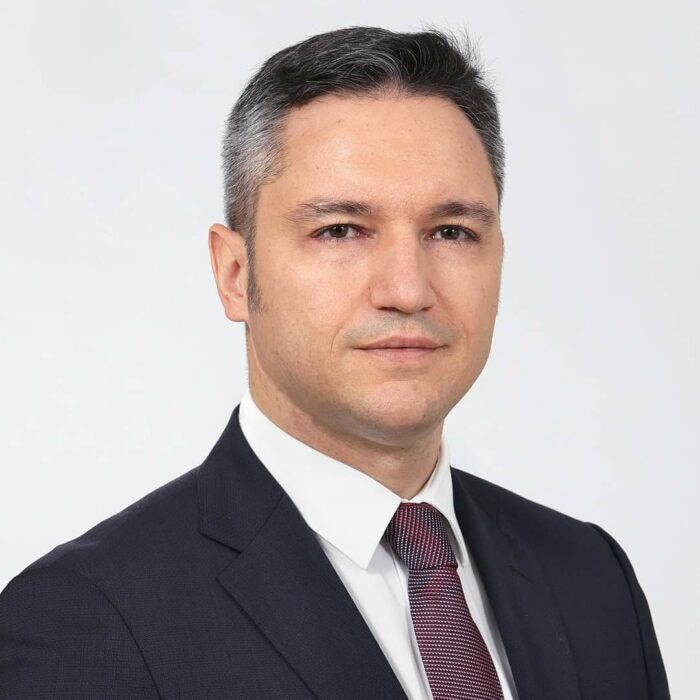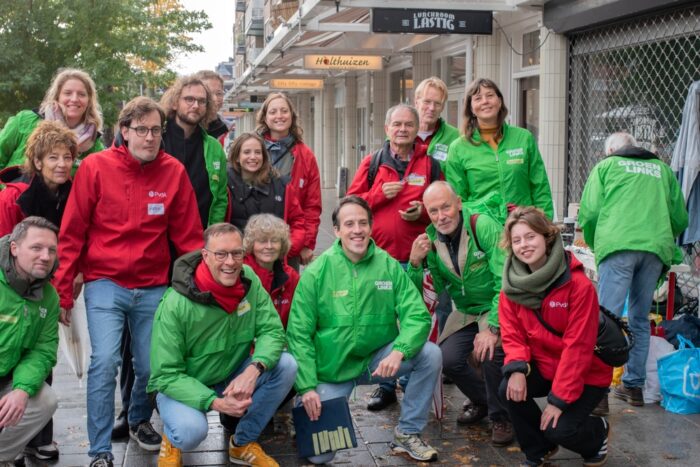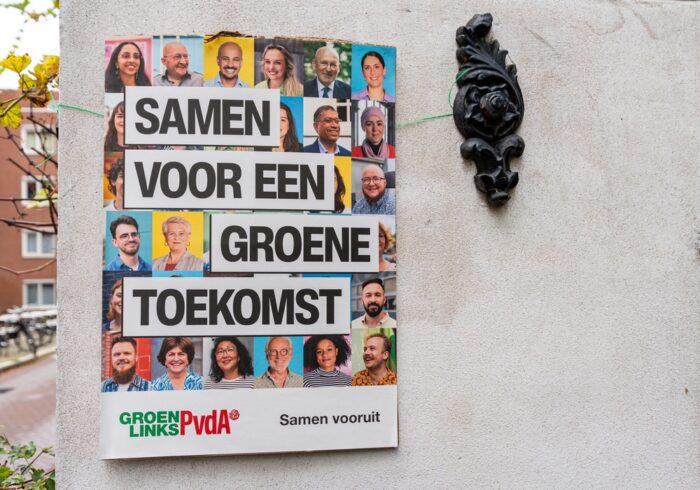Find all related Progressive Post
Progressive Post

Parliamentary elections took place in Bulgaria on 4 April. They were marked by the Covid-19 pandemic not only because of the additional precautionary measures taken in the polling stations on the election day but also because of the third wave of increasing infections and hospitalisations during the campaign period. This third wave led to a complete lockdown in the final phase of the campaign and prevented parties and candidates from almost any physical campaigning. Priority was given to media coverage, especially TV, where the ruling party had enormous advantage due to its large misuse of administrative resources, and the prime minister and his ministers continued to exercise their duties during the campaign period even though all of them were also candidates. They thus gained large coverage outside the campaign limitations.
The election results showed decreasing support for the parties that were part of the previous legislature. The ruling party GERB (affiliated to the European People’s Party) won 26.18 per cent of the votes (down from 33.54 per cent), while the main opposition party, the Bulgarian Socialist Party (BSP, member of the PES) came third for the first time since 2001 with 15.01 per cent (down from 27.93 per cent). Two other blocs fell under the 4 per cent threshold and will not enter parliament this time. The Movement for Rights and Freedoms (MRF, member of ALDE) maintained its support and scored 10.49 per cent (9.24 per cent in 2017). Surprisingly, the newly established party of a TV showman and singer, “There Is Such a People”, came second with 17.66 per cent, while another new coalition called “Stand up! Thugs Out!” succeeded in crossing the threshold with 4.72 per cent. A third new player is the right-wing coalition Democratic Bulgaria, which scored 9.45 per cent.
Initial conclusions show that the huge anti-government protests of last summer have found political representation in the new parliament. However, the Socialist Party, which took part in the protests, was largely seen by the voters as part of the status quo, was not able to attract the protest vote against the government and could only count on its core voters’ support. Even if erosion of the ruling party’s support continues, administrative and controlled vote keeps playing in its favour in the elections.
The BSP run a positive campaign, focused on the main topics of concern for the citizens: reform of the health care system, better education, reform of the pension system, demographic policy and support for families and youth, better economic governance and support for SMEs, and the fight against corruption. This was a logical continuation of the party’s opposition activity in the last parliamentary term.
The BSP leadership has recognised the fact that the goal to become the first political force in the country could not be achieved and it has now started a period of reflection and active dialogue with its local branches and members about its further development and the role and positioning the party should take in the political and social life.
The formation of a new government remains problematic. The current ruling party has no partners and thus will not be able to form a governing majority in the parliament. That means an end to Prime Minister Borissovs’ rule, as no other political force is willing to cooperate with him. The second largest party in the new parliament, There Is Such a People, has declared its unwillingness to cooperate with any of the ‘status-quo parties’ , as they label GERB, the BSP and MRF. However, the remaining two parties – Stand up! Thugs Out! and Democratic Bulgaria – do not have sufficient members of parliament with whom to build a majority.
The BSP, for its part, has declared its readiness to grant support in parliament for a coalition between these three parties, without participating in it. The main goal of this is to avoid early elections and make sure that GERB is permanently removed from power. Democratic Bulgaria, for its part, has indicated that the option of holding early elections is acceptable for them, in the hope of better results for the anti-GERB forces.
So far, the response has been mixed, and the final decision lies in the hands of the leader of There Is Such a People, who did not make any statement after the elections. At the same time Borissov has tried to save his party’s ability to influence the processes and, already on the night of the elections, he thus offered the establishment of an expert cabinet supported by all parties. Only two days later he suggested that ten members of parliament from his group could support a government formed by There Is Such a People on a permanent basis, a proposal that only goes to show his attitude towards parliamentarians, that he considers as people for sale, without an opinion or an individual position.
This complex situation will have to be solved within the constitutional deadlines. The deadline for the president to convene the new National Assembly is 4 May. After the new legislature is established by electing the speaker and forming the parliamentary groups, the president must give a mandate to form a government to the largest group, which has a week to try to do so. If GERB fails, which is highly likely, the president will give the mandate to the second largest group. If There Is Such a People also fails, then it is the president’s choice to ask one of the remaining groups to make a third and last attempt within one week. If all fail, then National Assembly will be dissolved, and new elections will have to take place.
Photo Credits: shutterstock.com/YulianStaykov
Related articles:
Bulgarian elections 2021: checkmate!, by Tsvetelina Penkova, member of the European Parliament in the Group of Socialists and Democrats
The Bulgarian parliamentary elections of 4 April and the quest for a new social contract, by Georgi Pirinski, Member of the European Parliament (2014-19)
Bulgarian elections 2021: shattered status quo and the need to revive the left, by Teodor Slavev, senior research fellow at the Bulgarian Institute for Legal Initiatives
| Cookie | Duration | Description |
|---|---|---|
| cookielawinfo-checkbox-advertisement | 1 year | Set by the GDPR Cookie Consent plugin, this cookie is used to record the user consent for the cookies in the "Advertisement" category . |
| cookielawinfo-checkbox-analytics | 11 months | This cookie is set by GDPR Cookie Consent plugin. The cookie is used to store the user consent for the cookies in the category "Analytics". |
| cookielawinfo-checkbox-functional | 11 months | The cookie is set by GDPR cookie consent to record the user consent for the cookies in the category "Functional". |
| cookielawinfo-checkbox-necessary | 11 months | This cookie is set by GDPR Cookie Consent plugin. The cookies is used to store the user consent for the cookies in the category "Necessary". |
| cookielawinfo-checkbox-others | 11 months | This cookie is set by GDPR Cookie Consent plugin. The cookie is used to store the user consent for the cookies in the category "Other. |
| cookielawinfo-checkbox-performance | 11 months | This cookie is set by GDPR Cookie Consent plugin. The cookie is used to store the user consent for the cookies in the category "Performance". |
| csrftoken | past | This cookie is associated with Django web development platform for python. Used to help protect the website against Cross-Site Request Forgery attacks |
| JSESSIONID | session | The JSESSIONID cookie is used by New Relic to store a session identifier so that New Relic can monitor session counts for an application. |
| viewed_cookie_policy | 11 months | The cookie is set by the GDPR Cookie Consent plugin and is used to store whether or not user has consented to the use of cookies. It does not store any personal data. |
| Cookie | Duration | Description |
|---|---|---|
| __cf_bm | 30 minutes | This cookie, set by Cloudflare, is used to support Cloudflare Bot Management. |
| S | 1 hour | Used by Yahoo to provide ads, content or analytics. |
| sp_landing | 1 day | The sp_landing is set by Spotify to implement audio content from Spotify on the website and also registers information on user interaction related to the audio content. |
| sp_t | 1 year | The sp_t cookie is set by Spotify to implement audio content from Spotify on the website and also registers information on user interaction related to the audio content. |
| Cookie | Duration | Description |
|---|---|---|
| CONSENT | 2 years | YouTube sets this cookie via embedded youtube-videos and registers anonymous statistical data. |
| iutk | session | This cookie is used by Issuu analytic system to gather information regarding visitor activity on Issuu products. |
| s_vi | 2 years | An Adobe Analytics cookie that uses a unique visitor ID time/date stamp to identify a unique vistor to the website. |
| Cookie | Duration | Description |
|---|---|---|
| NID | 6 months | NID cookie, set by Google, is used for advertising purposes; to limit the number of times the user sees an ad, to mute unwanted ads, and to measure the effectiveness of ads. |
| VISITOR_INFO1_LIVE | 5 months 27 days | A cookie set by YouTube to measure bandwidth that determines whether the user gets the new or old player interface. |
| YSC | session | YSC cookie is set by Youtube and is used to track the views of embedded videos on Youtube pages. |
| yt-remote-connected-devices | never | YouTube sets this cookie to store the video preferences of the user using embedded YouTube video. |
| yt-remote-device-id | never | YouTube sets this cookie to store the video preferences of the user using embedded YouTube video. |
| yt.innertube::nextId | never | This cookie, set by YouTube, registers a unique ID to store data on what videos from YouTube the user has seen. |
| yt.innertube::requests | never | This cookie, set by YouTube, registers a unique ID to store data on what videos from YouTube the user has seen. |
| Cookie | Duration | Description |
|---|---|---|
| COMPASS | 1 hour | No description |
| ed3e2e5e5460c5b72cba896c22a5ff98 | session | No description available. |
| loglevel | never | No description available. |


